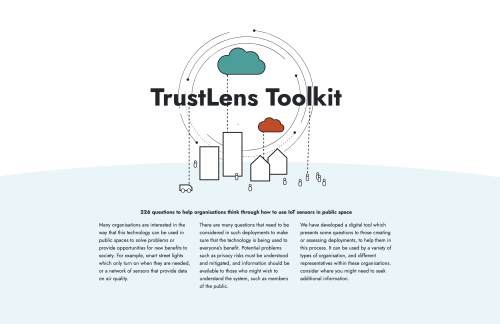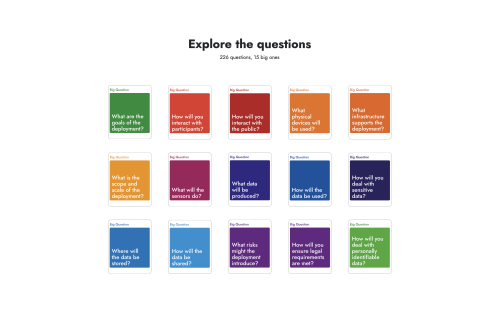The Trustlens interactive tool has been developed as part of the P-PITEE project, to help organisations think through Internet of Things (IoT) sensors in public spaces. The tool was developed as part of the P-PITEE project, as part of a wider piece of work to develop a policy for IoT devices in public places with our local city council.

The Trustlens Toolkit Website
As we see an increase in the number of sensors in our public places, it is vital that organisations in charge of implementing them consider the ethical issues they might pose. Examples of IoT sensors include, for example, smart street lights which only turn on when they are needed, or a network of sensors that provide data on air quality. There are many questions that need to be considered in such deployments to make sure that the technology is being used to everyone’s benefit. Potential problems such as privacy risks must be understood and mitigated, and information should be available to those who might wish to understand the system, such as policy makers and members of the public.
The Trustlens website provides free downloadable resources to guide organisations through the process of asking questions about potential deployments.

The Trustlens Toolkit is downloadable
Questions cover three project stages: scoping, development and operation and the website offers examples to guide organisations through the process. Resources include guidelines for facilitators, to hold workshops, question packs to guide organisations through the process, and downloaded question templates to develop their own questions. The full website is now live at https://www.lancaster.ac.uk/trustlens/
For further information please contact imagination@lancaster.ac.uk
